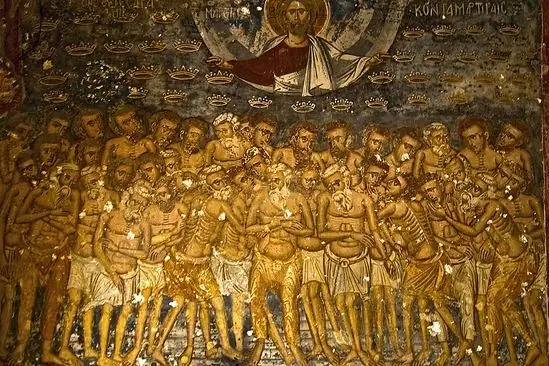- Author Antonio Harrison harrison@cultureoeuvre.com.
- Public 2023-12-16 07:44.
- Last modified 2025-01-22 21:44.
There are not many great church holidays in March. This is often the time of holy Great Lent. However, this month, there are several special Orthodox celebrations.

On March 2, the Orthodox Church of Russia commemorates the great Russian saint - Saint Hermogen, Patriarch of All Russia. The celebration of this saint was established back in 1913, when Patriarch Hermogenes was canonized. The saint was elevated to the rank of patriarch in 1606. He is known for trying in every possible way to strengthen the people in the struggle against the invaders (the beginning of the 17th century in Russia was the Time of Troubles). The saint opposed the heads of other states who wanted to plant Catholicism in Russia.
On March 9, the Church commemorates the First and Second Finding of the Head of John the Baptist. It is known from the Gospel that the holy prophet died after the decree of King Herod. His head was cut off. The saint denounced the wicked Herodias, who lived in fornication with Herod. The execution of the saint took place at the request of this woman. They brought her on a platter the head of the holy prophet, which Herodias hid at the foot of the Mount of Olives. Then the pious monks found this chapter (IV century). But soon the great shrine was again lost due to the negligence of the monks. She passed on to the pious monk Eustathius, who hid the shrine in a cave near Emesa. Soon a monastery was built on the site of the cave. John the Baptist appeared to the abbot of the monastery and indicated the place where his head was hidden. This was in 452.
On March 22, the Church celebrates the day of the holy forty martyrs of Sebastia. The saints suffered in the 4th century in Armenia (city of Sevastia). For refusing to worship the pagan gods, the saints were drowned in a lake. These people during their life were the soldiers of the state, and after death they became the soldiers of Christ.






